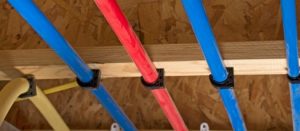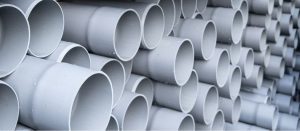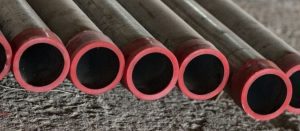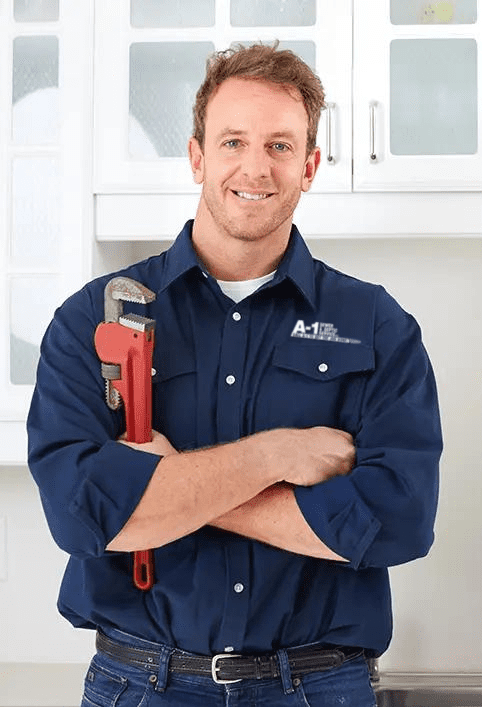As with many things in your home, your piping will not last you forever. Your pipes may last you a long time, but after years of use, it is likely that they will need to be replaced before they begin to leak. Knowing what types you have in your home can give you a better idea about whether these pipes should be replaced right away in the future.
Common Home Plumbing Pipes
Copper Pipe
Copper pipe is among the most common pipe, and most traditional. Copper pipes can resist corrosion, and are joined together with solder, like other different types of plumbing pipes and metal pipes such as stainless steel pipes or galvanized steel pipes.
You see copper pipe used in many residential plumbing scenarios, and may be required by certain building codes. There are also two main types of copper pipe; rigid copper pipe and flexible copper pipe, or flexible copper tubing. This allows the DIY homeowner or plumber to buildup a copper pipe layout that fits their exact application, and connect water lines to water heaters, spigots, faucets and others.
PEX Piping
When it comes to modern types of plumbing pipes, it’s hard to mention anything without talking about PEX, or cross-linked polyethylene. PEX piping is often easier to work with than ABS pipes, PVC pipes or other plastic pipes. It is often used by the DIY homeowner to run for hot water and cold water supply lines, under sink connections for faucets, and for drain lines and drinking water pipes.
The glue together with solvents and couplings, and can be cut with a hacksaw. However they can break down and have issues if they are exposed to sunlight, and if they are not installed correctly the glue can break down, especially with the buildup of water pressure, and cause issues.
PVC Pipe
PVC pipe, or polyvinyl chloride, is a common drain line pipe choice, as well as used for vents for the plumbing system (known as DWV, or Drain, Waste and Venting). Another variant of this is CPVC pipe, or chlorinated polyvinyl chloride, by adding chlorine to the mix, for use in different applications.
Polyvinyl chloride pipes were lighter and easier to work with than other metal pipes or lead pipes, and are relatively easier to install and weld together with solvents. They are used for many water distribution applications, and the pipe materials or heat resistant and corrosion-resistant.
Galvanized steel pipe / Cast iron pipe
This kind of pipe is most commonly found in older homes, and is not used often by today’s new construction or retrofits. It can be required however, in some cases, such as for natural gas.
How long will the pipes in my home last?
The types of pipes in the home may be found in the home inspection report from when the home was built or purchased. If you cannot find this document, then you can have a plumber of A-1 Sewer & Septic Service, Inc. come to do an inspection of your plumbing system.
When a plumber lets you know what kinds of pipes you have, you can determine their longevity:
- Brass: 40 to 70 years
- Copper: 50 years
- Galvanized steel: 20-50 years
- Cast iron: 75-100 years
- Polyvinyl chloride (PVC): Indefinitely
While these types of pipes can generally last in this range, pipes that are well taken care of can last longer, while poorly maintained pipes may need to be replaced significantly sooner. Be sure to take care of your pipes to help extend the longevity of your plumbing and prevent expensive repairs down the line.
If you need to replace a section of galvanized steel piping, you can talk with a plumber about installing PVC piping to help increase the longevity of the pipes. Have other questions? Consulting with your trusted Kansas City plumber is the best course of action and what types of plumbing pipes would be best for your home and application!







